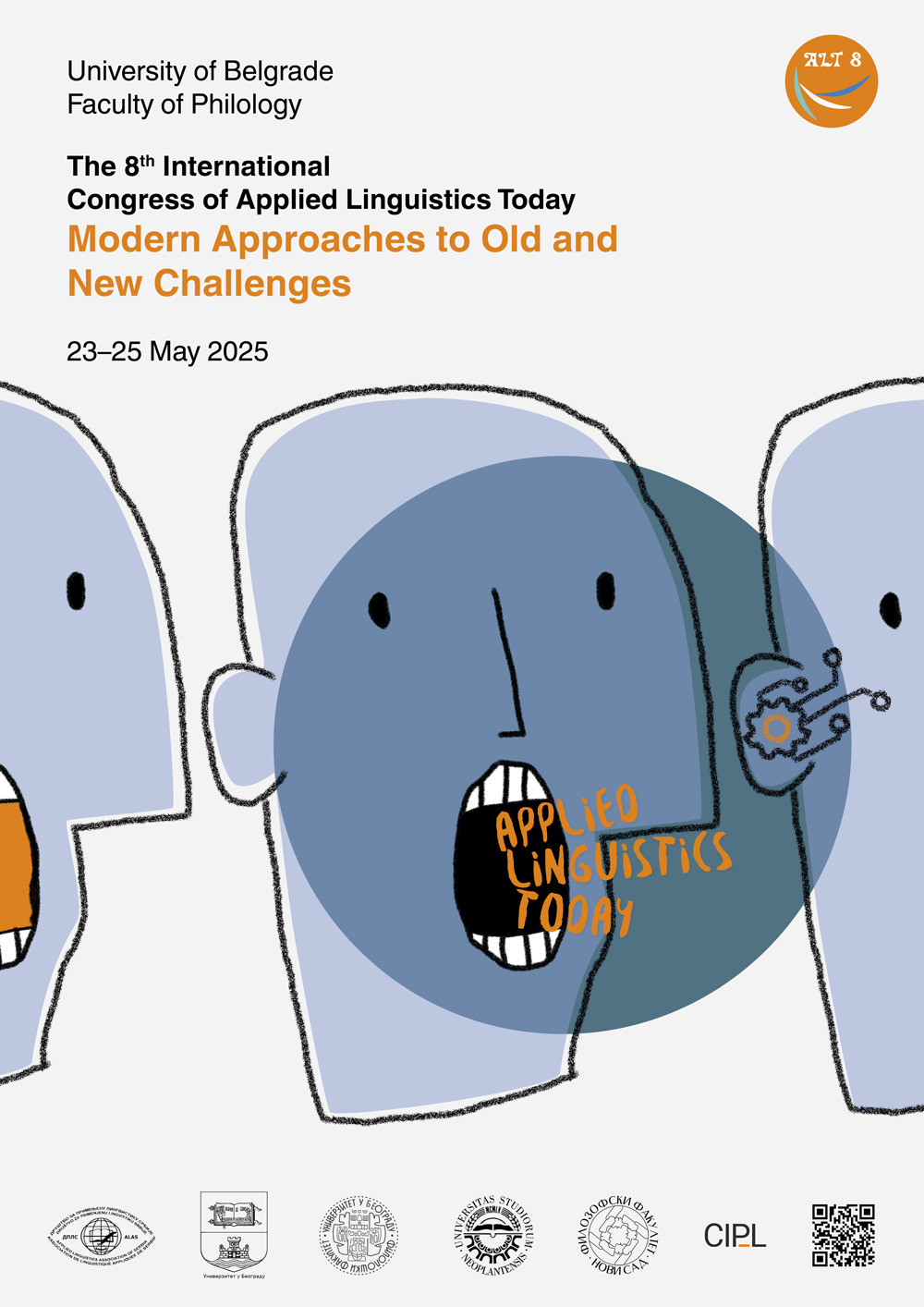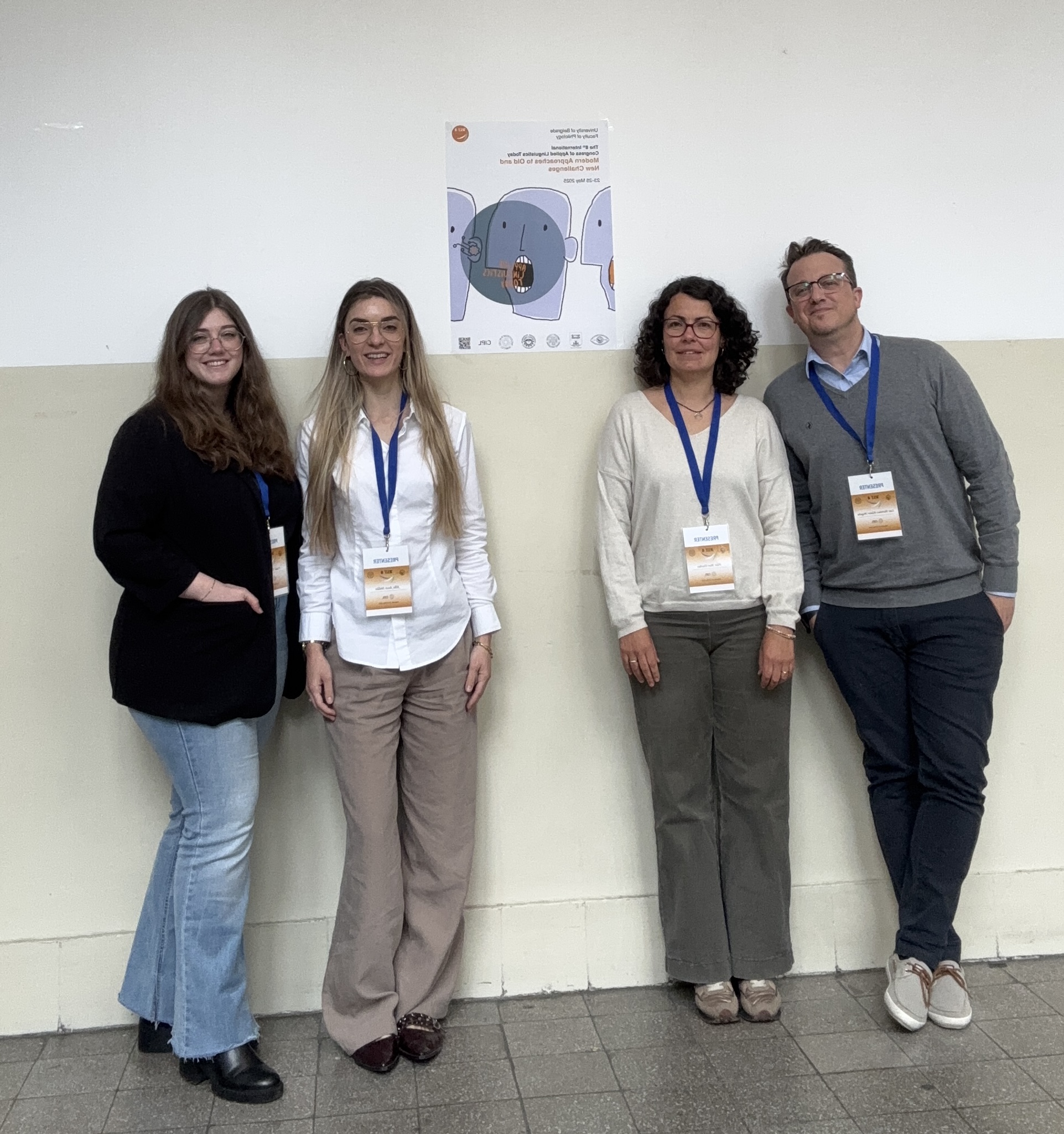InterGedi attends the ALT 8 Congress in Belgrade

Last week, some of our team members, Dr Pilar Mur-Dueñas, Luis Martínez-Kleiser, Paula Wood-Borque, and Alba Ansó-Millán participated in the 8th edition of the Congress Applied Linguistics Today, which focused on “Modern approaches to old and new challenges”. It was held at the Faculty of Philology in Belgrade (Serbia) and spanned three days, from the 23rd to the 25th of May 2025. This eighth edition was organised by the Applied Linguistics Association of Serbia (ALAS), the Faculty of Philology (University of Belgrade) and the Faculty of Philosophy (University of Novi Sad), in collaboration with the Comité International Permanent des Linguistes (CIPL). Some of the plenary speakers were Prof Ken Hyland (University of East Anglia) and Dr Marta Kajzer-Wietrzny (Adam Mickiewicz University in Poznań).
The first Congress of Applied Linguistics Today was celebrated in the year 2003 and took place in Herceg Novi in late September. It was organised by the Applied Linguistics Association of Serbia (ALAS) in partnership with the Faculty of Philosophy in Novi Sad, the Applied Linguistics Association of Montenegro and the Applied Linguistics Association of Vojvodina. Subsequent international editions of the congress centred on “Challenges of Modern Times” (October 2012), “New Tendencies in Theory and Practice” (2015) and “Language, Literature and Interdisciplinarity” (October 2018), amongst others.
All of our colleagues presented on the second day of the conference, Saturday the 24th of May 2025. First, Dr Mur-Dueñas delivered a paper on “Recontextualising scientific knowledge
in the digital medium: What role do cognitive discourse functions play?” She borrowed the framework of cognitive discourse functions (CDF) and combined it with knowledge communication theory to look into digitally-mediated recontextualisation processes. Click here to read further.
Next, Luis Martínez-Kleiser’s presentation was entitled “Recontextualizing scientific content for adolescent audiences in the digital medium: Analyzing explanatory strategies”. He discussed the way digital scientific dissemination texts for adolescents generate engagement and facilitate comprehension. Find an overview of his presentation here.
Then, Alba Ansó-Millán delivered a paper aimed at “Analysing the discourse of science podcasts and their use in the EFL classroom”. There, she presented her findings on the types of strategies found to be oriented towards enhancing knowledge accessibility. She discussed how these appeared to be strategically and distinctly used by the hosts and the experts in her corpus of science podcasts.
Lastly, Paula Wood-Borque presented “A multimodal analysis of films and series for English as a Foreign Language Teaching”, where she shared her taxonomy of multimodal analysis, discussed the results from the analyses of two scenes from her CAMELLS corpus and made suggestions for EFL exploitation. More information about her presentation can be found here.
This was a great opportunity to have a glimpse at what other peer scholars are currently investigating in our field and to be able to foster international connections!

